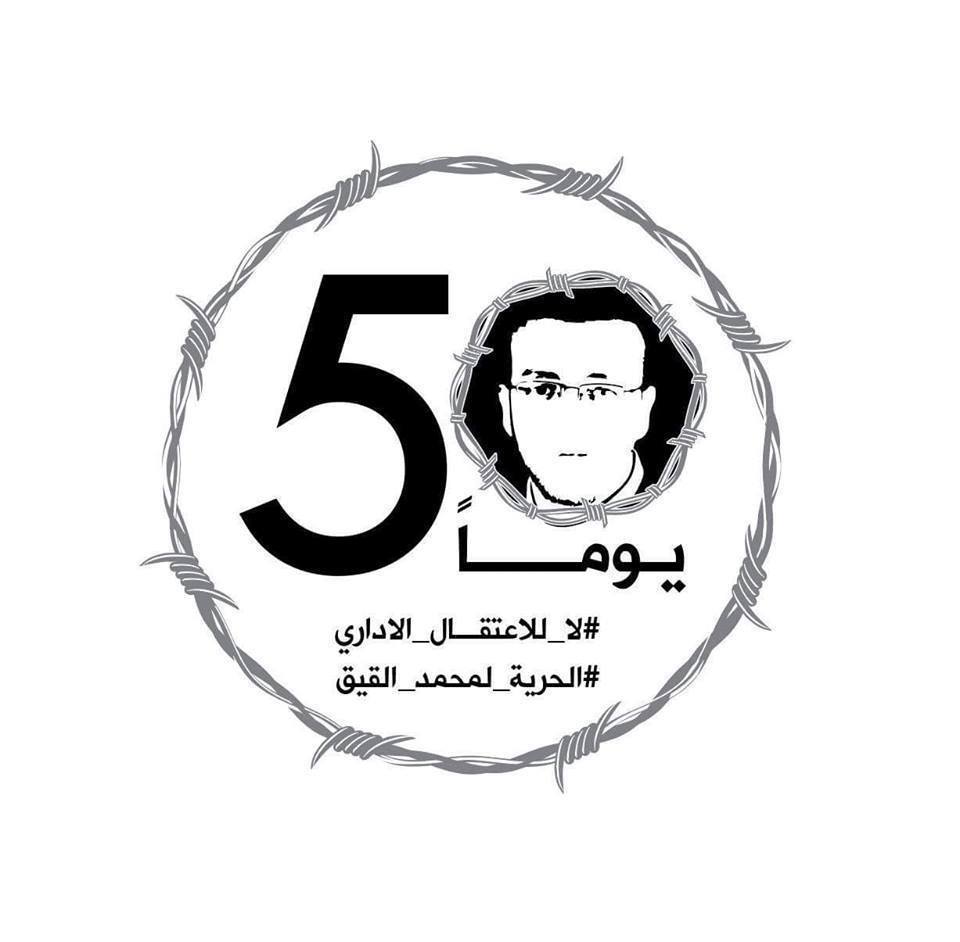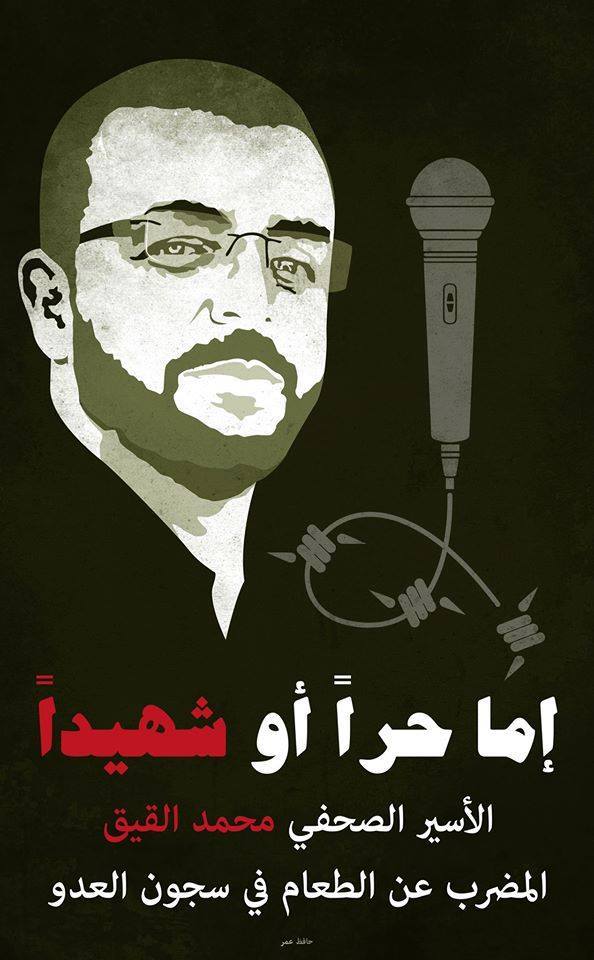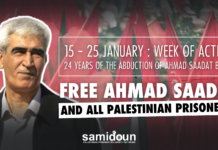
As he reached his 50th day of hunger strike, Palestinian journalist Mohammed al-Qeeq is facing a severe medical crisis and has been is threatened with – or has already been – force fed by his Israeli jailers in Afula hospital. Al-Qeeq, 33, is a Palestinian correspondent for Al-Majd TV who has been on hunger strike since 25 November 2015; he is held under a six-month Israeli administrative detention order without charge or trial, along with 660 other Palestinians.
He has lost consciousness, suffers from head, stomach and joint pain, is vomiting blood and has lost over 22 kilograms since his hunger strike began. He is held, shackled to the hospital bed, in Afula hospital.
 Al-Qeeq was arrested three times before this arrest:in 2003, in 2004 when he was sentenced to 13 months, and in 2008, sentenced to 16 months. He is married and has two children.
Al-Qeeq was arrested three times before this arrest:in 2003, in 2004 when he was sentenced to 13 months, and in 2008, sentenced to 16 months. He is married and has two children.
The Palestinian Center for Human Rights reported that in accordance with the new law, the so-called “Law to Prevent Harm of Hunger Strikes,” al-Qeeq was forcibly fed on 12 January in Afula hospital. Unlike the familiar practice of nasogastric feeding used in Guantanamo, a physically painful and violent practice that has been publicized in videos, the feeding tactic used in this case is intravenous feeding with fluids containing nutrients, which Al-Qeeq has rejected. While less physically violent than nasogastric feeding, it can have serious physical side effects when carried out over a long period of time.
Furthermore, whether or not the forced feeding or provision of nutrients is physically painful, it remains a violation of the guidelines and medical practice of the International Committee of the Red Cross and the World Medical Association, which underline the fundamental right to bodily integrity and the right to choose, which is directly assaulted by forced nutrition of any kind; forced nutrition against a prisoner’s choice to engage in a hunger strike undermines human dignity and is unjustifiable.
Al-Qeeq is not the only Palestinian administrative detainee on hunger strike – Hasan Hasanin Shokah, who has been repeatedly held by Israeli forces under administrative detention without charge or trial. Imprisoned without charge since 16 September, he launched a hunger strike after he was transferred to Jalameh prison.
Abdullah Abu Jaber, who also has Jordanian citizenship, is also on hunger strike – he previously engaged in a strike for several weeks, which he initially ended after allegedly reaching agreement on his demands. However, when he was returned to Al-Ramla prison hospital, the agreement was not in place, he was informed that none of his demands would be met, and he re-launched his strike.
Samidoun Palestinian Prisoner Solidarity Network emphasizes that the imposition of forced feeding and intravenous nutrition against the will of Al-Qeeq is a violation of his rights and does not end his strike; he and his fellow Palestinian prisoners need international solidarity and support more than ever.
Take Action to support the Hunger Strikers:
1. Protest at the Israeli consulate or embassy in your area. Bring posters and flyers about administrative detention and Palestinian hunger strikers and hold a protest, or join a protest with this important information. Hold a community event or discussion, or include this issue in your next event about Palestine and social justice. Please email us atsamidoun@samidoun.net to inform us of your action – we will publicize and share news with the prisoners.
2. Contact political officials in your country – members of Parliament or Congress, or the Ministry/Department of Foreign Affairs or State – and demand that they cut aid and relations with Israel on the basis of its apartheid practices, its practice of colonialism, and its numerous violations of Palestinian rights including the systematic practice of administrative detention. Demand they pressure Israel to free the hunger strikers and end administrative detention.
2. Boycott, Divest and Sanction. Hold Israel accountable for its violations of international law. Don’t buy Israeli goods, and campaign to end investments in corporations that profit from the occupation. G4S, a global security corporation, is heavily involved in providing services to Israeli prisons that jail Palestinian political prisoners – there is a global call to boycott it. Palestinian political prisoners have issued a specific call urging action on G4S. Learn more about BDS at bdsmovement.net.
Discover more from Samidoun: Palestinian Prisoner Solidarity Network
Subscribe to get the latest posts sent to your email.




